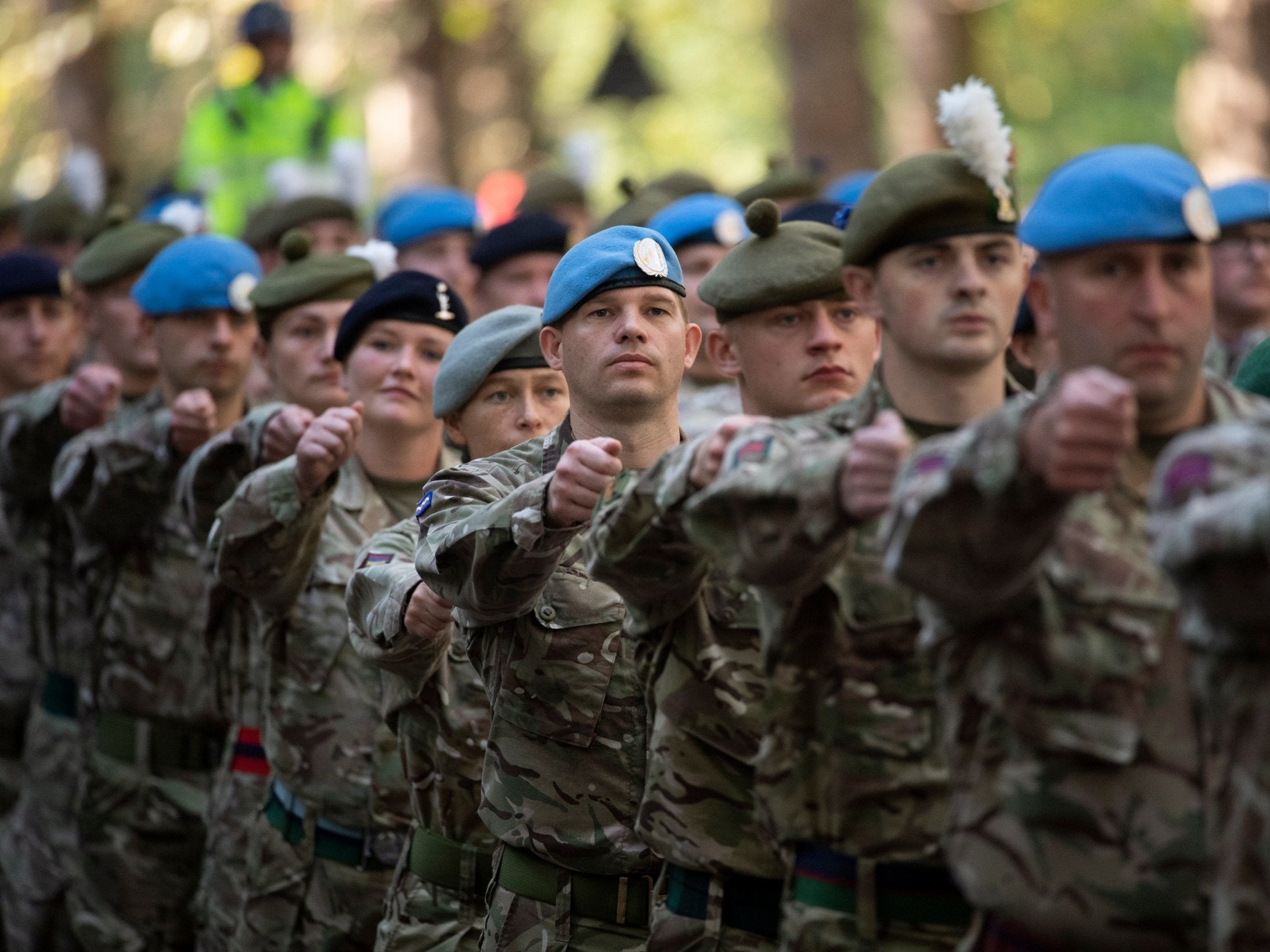Foreign nationals to be allowed to join armed forces without having lived in UK amid recruitment crisis
Ministry of Defence scraps residency requirements in bid to tackle shortfall

Your support helps us to tell the story
From reproductive rights to climate change to Big Tech, The Independent is on the ground when the story is developing. Whether it's investigating the financials of Elon Musk's pro-Trump PAC or producing our latest documentary, 'The A Word', which shines a light on the American women fighting for reproductive rights, we know how important it is to parse out the facts from the messaging.
At such a critical moment in US history, we need reporters on the ground. Your donation allows us to keep sending journalists to speak to both sides of the story.
The Independent is trusted by Americans across the entire political spectrum. And unlike many other quality news outlets, we choose not to lock Americans out of our reporting and analysis with paywalls. We believe quality journalism should be available to everyone, paid for by those who can afford it.
Your support makes all the difference.Commonwealth citizens who do not live in the UK will be allowed to join the British armed forces in greater numbers as part of a bid to tackle a growing recruitment crisis.
The Ministry of Defence has revised residence requirements in the hope of attracting an extra 1,350 personnel a year to the army, navy and air force.
At least 8,200 are needed to fill the biggest shortfall in the full time military in a decade, according to a report from the National Audit Office (NAO).
The new Ministry of Defence policy means applicants from nations including India, Australia, Canada and Fiji will be considered for all roles in the military.
Since 2013, Commonwealth recruits have had to demonstrate they have lived in the UK for the last five years.
Two years ago the rules were relaxed to allow a maximum of 200 non-residents to take up a limited number of roles. The cap has now been raised to 1,350 a year and of those 1,000 will be hired by the army, 300 by the navy and 50 by the RAF.
Those from outside the Commonwealth will still need British citizenship to apply, apart from Nepalese Gurkhas and applicants from the Republic of Ireland, who can enrol under a special arrangement.
The five-year residence requirement had previously been waived in 1998 and the UK already employs 4,500 Commonwealth citizens in the armed forces.
Minister for the armed forces Mark Lancaster said: “As an outward-looking nation, Britain has always counted on the dedicated service of our friends from the Commonwealth to keep this country safe.
“From Australia to Jamaica, to Fiji and South Africa, Commonwealth recruits are already playing a key role in our armed forces.
“So we’re stepping up the numbers of recruits from the Commonwealth, knowing that they will bring key skills and dedicated service to our military.
“Their different perspectives will also help us to enhance our cultural understanding, giving us an operational advantage over our adversaries.”
It follows the announcement by the Ministry of Defence that women would be allowed to apply for all roles in the British military including the royal marines.
In April the NAO found that the armed forces had “significant skill shortfalls in many critical areas” with a shortfall of 5.7 per cent in staff.
It said the shortfall stemmed from a failure to effectively recruit staff and retain existing employees.
Amyas Morse, head of the NAO, said: “Ensuring the armed forces have the right number of skilled personnel in place is not a new challenge, but given the complexity and development of new, modern world threats, it is a challenge that will only continue to grow.
“The department needs to fundamentally change its approach to develop skilled personnel and address the long-established shortfalls that persist.”
Chancellor Philip Hammond announced an extra £1bn of defence spending in the Budget last week.
Additional reporting by Press Association
Join our commenting forum
Join thought-provoking conversations, follow other Independent readers and see their replies
Comments